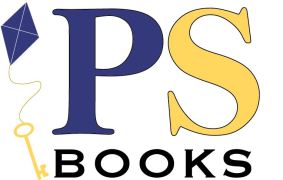Today’s expert knows the ins and outs of the world of ePublishing. The interview below is just a small taste of the wealth of knowledge Miral Sattar can offer.
Wittle: Please explain a bit more about BiblioCrunch for those who may not be familiar with the company and its benefits for writers.
Sattar: BiblioCrunch helps connect authors and publishers with book publishing professionals to get new books and apps to market. With an exclusive community of professionals who have worked for some of the largest publishing houses, including Simon & Schuster, Penguin, Random House, and Harper Collins, BiblioCrunch authors can get access to resources that BIG SIX publishing have.
We also have a lot of first-time self-publishers. One writer actually suggested we launch a Concierge Service for authors where we hand-hold the author through the process of self-publishing. I’m excited to announce that we just launched this service and it’s doing really well.
Wittle: What are your thoughts on the changing world of publishing?
Sattar: There is so much activity in the publishing space in terms of new platforms and tools because the publishing industry is one of the last industries to go digital. It’s the last man standing and that’s why it’s going through the quickest transition. Digital publishing today is where blogs were five or six years ago. In 2006 writers would tell each other, ‘you started your own blog? Why would you do that instead of writing for a traditional magazine or newspaper?’” We’re seeing a similar shift with traditional and self-published authors. Now you see all the big publishing houses court self-publishers who have succeeded on their own.
Wittle: How has e-publishing hurt and helped new writers?
Sattar: Because the tools are accessible to everyone there are a greater number of ‘bad’ books being published. ‘Bad’ books are book with poor covers that someone used PowerPoint to create or books that have clearly not been edited well. ‘Bad’ books have grammar errors and are poorly formatted or not been proofed. This has given self-publishers a negative reputation.
E-publishing is helping new writers in that there is no barrier to entry to publish a book anymore. You can be a relatively unknown author and leverage the various programs out there, like KDP Select, to create your own community of readers. If you have a blog or a twitter following or a community of followers, you already have a potential community of new writers.
Wittle: What are some of the mistakes a new writer can make in regards to e-publishing?
Sattar: The biggest mistakes I see authors make is publishing without a plan. Writing a book is like launching a business and to make money you have to invest in it and follow a plan. You need to do research to make sure you have your basics covered like making sure you have a well-edited book, an eye-catching cover, and a marketing strategy.
Another huge mistake authors make is spending a lot of money on vanity presses first without doing research. I have had countless authors come to BiblioCrunch who have spent thousands of dollars on vanity presses that didn’t do very much to market or edit their book.
Wittle: What are some of the benefits to e-publishing for a writer?
Sattar: You can publish your book almost as soon as you’re done and get feedback immediately. You don’t have to wait 6-18 months to see it out in the world that you would normally see with a traditional publisher. You also have control – you control how much your book gets edited, you control how the cover will look, and you control the pricing. AND, you get to keep most of your royalties.
Wittle: Does e-publishing take away the need for editors and agents?
Sattar: Another big mistake I see authors make is that they submit unedited books into the various retailers like Amazon and BN. Editing your own work is very very difficult and this is something that you need to spend money and hire someone for.
I don’t see agents going away, but I do see their roles changing. More and more of them are launching small indie presses to support their authors.
Wittle: In what ways can technology help a writer? I’m thinking about apps and social media.
Sattar: We hear a lot about author platforms. Creating an author platform is important because authors who have platforms have an audience to sell books to. Social media is just one way for an author to have a platform. I was able to get the buzz out about the NYC Dessert Guide (http://www.amazon.com/dp/B007EFM1F6) that I self-published through FB and Twitter which helped it rank #1 in its category and helped crack the Top 100. There are so many Facebook groups and Twitter chats that authors can join that provide community and tips for other writers. Goodreads also has a great community, where you can do giveaways for your book, and Rafflecopter is a great tool that lets you have giveaways and track them for your book.
Miral Sattar Bio:
Miral Sattar is founder and CEO of BiblioCrunch, a platform that connects
authors with quality, vetted book publishing professionals. She has worked
in the media industry for 11 years, most recently at TIME where she
launched several digital initiatives including an iPad and mobile site,
mobile apps, a video and podcast channel, blogs, and SEO. Her writing has
been featured in TIME, CNN, NY Daily News, among other media publications.
She has a MS in Publishing (Digital + Print Media) from NYU and a BS from
Columbia University in Electrical Engineering and Computer Science. You
can follow Miral on Twitter at @BiblioCrunch.
